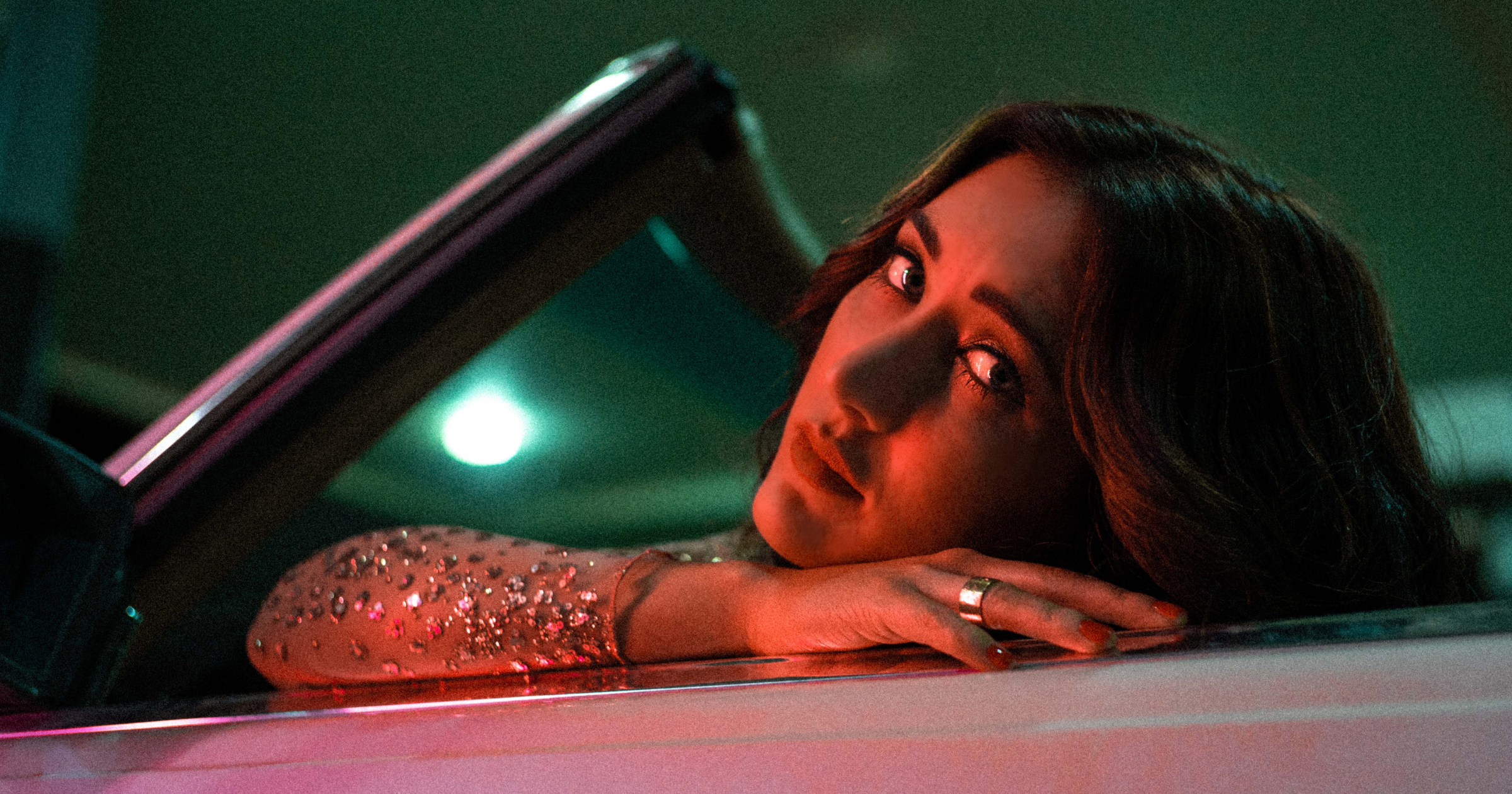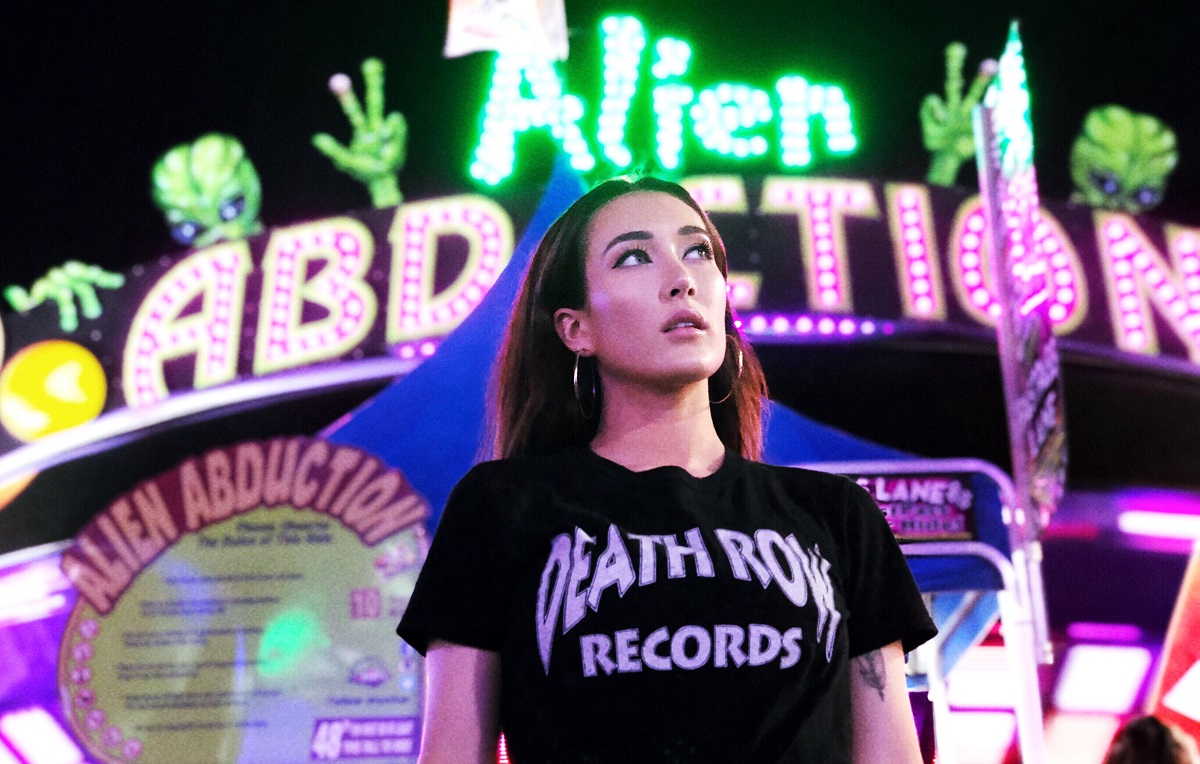With her new album Far From Home, Aubrie Sellers is living up to its title. Raised in Nashville as the daughter of musicians (Jason Sellers and Lee Ann Womack) and now living in Los Angeles, she absorbed bluegrass and country while still exploring genres with a harder edge. That spectrum of influences is apparent in her new music, which ranges from the softer sounds of the title track to the electrified vibe of “My Love Will Not Change,” a duet with Steve Earle.
Adding another meaning to “Far From Home,” Sellers wrote much of the album in Texas, and she’ll launch her national tour by opening for Tanya Tucker in New York City. BGS caught up with her just before she hit the road.
BGS: You recorded Far From Home at Sonic Ranch in Texas. What made you interested in working there?
Sellers: I was listening to a lot of what I call “desert music.” Tarantino soundtracks and The Ventures and stuff like that. I had taken my camper out to Marfa, Texas, and wrote some of the songs on this record there. I was very inspired by that vibe. My whole family is from Texas, so that kind of feels like my home.
Also I wanted to get outside of Nashville and I loved that idea that the whole band stays there while you’re recording. You immerse yourself in the making of the music. It’s really important for me to focus on making a record and having a cohesive experience. I feel like all that stuff tied together.
Why did you feel like you needed to get out of Nashville, do you think?
It’s nice to have no distractions. It’s nice to have a new environment. Your environment affects what you’re doing and I felt like it was important to have that vibe, since that’s what was in my brain already. It’s just nice to escape and make sure that you’re really focusing on making the record, and focusing on the music, and doing something different.
Is that the reason you moved to L.A. as well?
Yeah, I grew up in Nashville and I’ve been around that scene my whole life. It felt important for me to get out of there and experience some new things, and surround myself with a totally fresh energy. Also I went to acting school growing up and I’ve always wanted to do that. I find the film industry here really inspiring. I tried to come here when I was younger and I wasn’t quite ready, so this time it stuck.
You draw on a lot of influences and genres in your sound, but where do you think country music comes into your musical vision?
For sure I think my songwriting is country. I think it’s a little of that personal touch — and you don’t find that as much in other genres. There’s a simplicity to it, in a good way hopefully! And then sonically, steel guitar is one of my favorite instruments. I don’t want to make a record without steel guitar on it.
I listen to a lot of traditional country but I also really love that era of country with Steve Earle and Dwight Yoakam and Lucinda Williams. I love Buddy Miller — he’s kind of on the fringe of country. Buddy and Julie Miller have been a huge influence on me. All of those, and of course, classic country like George Jones and Merle Haggard. Those were my biggest country influences.
Are you a fan of bluegrass?
Yeah, I play the banjo! I thought for a while when I was in high school that that’s what I was going to do. I love bluegrass. Ralph Stanley is my favorite singer. My dad grew up playing with Ricky Skaggs so I was around it a lot. I’m really inspired by bluegrass. On this record, I did “My Love Will Not Change,” which was written by Shawn Camp, but I knew the Del McCoury version. For me, there’s just a similarity in the intensity and the drive behind some bluegrass and rock and blues music. It’s got a simple, emotional feel to it, to me. All of those things connect in my brain and my heart. I love bluegrass.
What was your entrance point to Ralph Stanley? That’s a big catalog to navigate.
I guess just listening to old Stanley Brothers records. Fortunately I grew up in an era where I could explore all music on the internet, you know? So I would go into a bluegrass rabbit hole and listen to that. And then of course, I love the banjo. I think it’s like the electric guitar of bluegrass.
You co-produced this record, too [with Frank Liddell]. What kind of textures did you hope to capture?
I don’t bring in references or anything like that when I’m making music. I think it’s more important to have a vision in your head and make sure you’re bringing in the right players, putting them in the right environment, and having the right songs. Let it evolve, take your time, and let it breathe.
It’s the same with writing and choosing songs. I try not to make it like a factory. I try to let it happen organically. I think it’s making sure you’re putting together the right people in the right environment. You know, I had four guitar players on this record! Sometime it’s about having someone sit out for a song. Letting everything have room to breathe is my philosophy.
Photo credit: Chloé Aktas

